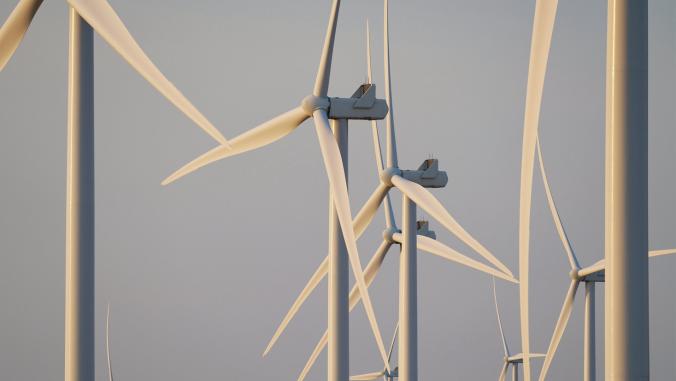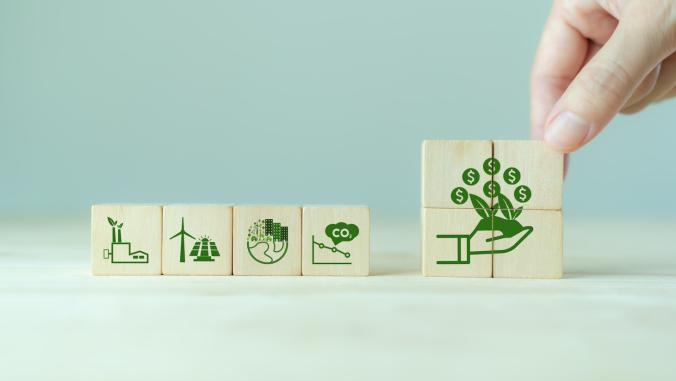2014 progress report: 5 positive signs for the world's forests
Governments, food companies, ag giants and the U.N. began to walk the talk of sustainability this year.

Many food and agriculture companies have talked up sustainability for years, but the past 12 months ushered in a new sense of urgency and action. Here's my completely subjective list of five notable developments that could signal the shift from conversation to conservation.
1. Coalition creates New York Declaration on Forests
One of the more significant developments to emerge from this year's United Nations climate week in New York City was a "political declaration" seeking to cut natural forest loss in half by 2020.
The goal by 2030: end it entirely, while restoring an area of forests and croplands roughly the size of India (at least 350 million hectares) by the long-term target date.
The first draft was signed by 30 of the world's 50 biggest companies, dozens of governments and more than 50 organizations representing environmental issues and indigenous people.
They wrote: "We share the vision of slowing, halting, and reversing global forest loss while simultaneously enhancing food security for all. Reducing emissions from deforestation and increasing forest restoration will be extremely important in limiting global warming to 2 degrees C. Forests represent one of the largest, most cost-effective climate solutions available today."
2. United Nations publishes Food and Agriculture Business Principles
Drafted after two years' worth of input from more than 1,000 stakeholders representing business and community interests, new voluntary principles (PDF) from the United Nations Global Compact are meant to intensify the urgency behind many existing programs. They cover food security, environmental responsibility, economic viability for local communities, governance, accountability and knowledge transfer.
"With the goal of advancing sustainable development, the FAB Principles offer a frame of desired outcomes and actions that companies can take to align with the goals of U.N. as articulated in the Rio+20 outcome document, The Future We Want (PDF), and the forthcoming post-2015 development agenda," the U.N. notes.
3. Ag giants sign Indonesian Palm Oil Pledge
Another notable development disclosed during the U.N. climate summit was the specific commitment (PDF) by four of the world's biggest palm oil producers to buy "sustainable palm oil that is deforestation-free, respects human and community rights and delivers shareholder value."
The foursome signing this declaration were Asian Agri, Cargill, Golden Agri Resources and Wilmar International Ltd.
Indonesia took over the dubious distinction as the No. 1 "deforester" in 2012. This pledge is vitally important, given that demand for palm oil — used in everything from dish soap to ice cream — is set to double by 2030 and triple by 2050. Many of the biggest consumer goods and food companies in the world in 2014 began focusing more attention on this issue. Among those strengthening their policies: Unilever, Mars, Procter & Gamble, Nestle, Kellogg, and Johnson & Johnson.

Asian Agri, Cargill, Golden Agri Resources and Wilmar International Ltd. pledged this year to buy sustainable palm oil.
Noted David McLaughlin, vice president of agriculture for World Wildlife Fund-US: "The implementation of these commitments is a monumental task, and it is going to require the support of other producers, environmental stewardship organizations, traders, customers, governments and local communities if it is to be successful. Transparency and engagement around suppliers is critical, and must be aggressively pursued and openly reported."
4. Brazil renews Soy Moratorium
The eight-year-old trading moratorium on soy linked to Amazon rain forest destruction, set to expire Dec. 31, just got an 18-month extension.
The policy developed by ABIOVE and ANEC (National Association of Cereals Exporters) covers an area in the biome responsible for producing up to 98 percent of the country's soy crop. Over its lifetime, however, just 4.6 percent of the deforestation across the region was linked to soy crops.
At least a dozen high-profile food, commodities and grocery companies helped champion the extension, including McDonald's, Nestle, Tesco, Sainsbury's and Cargill. They seek to buy time to work with the Brazilian government on a broader zero-deforestation policy.
Although progress has been erratic in recent years, deforestation rates decreased 18 percent between August 2013 and July, according to the Brazilian environmental ministry. The news is a relief after the 29 percent increase reported for the previous 12-month period.
"But deforestation is still a major threat, and Brazil can do even better," said Paulo Adario, senior forest strategy advisor for Greenpeace International, in a statement. "In order to permanently halt the destruction of the Amazon, the government must now commit to a policy of zero deforestation."
5. General Mills extends vanilla program in Madagascar
In early 2013, General Mills and its Haagen-Dazs ice cream division started piloting sustainable farming and harvesting practices in the country's Sava region.
The goal: strengthen local communities' ability to benefit economically from vanilla orchids. The motivation: the region supports more than 90 percent of the world's supply.
Since the program's introduction, it has been extended to reach more than 900 growers that have the capacity to fill Haagen-Dazs' vanilla needs.
For General Mills, vanilla is just one of 10 "priority ingredients" that it has pledged to source sustainably by 2020. "As a food company, we know that the vitality of our business depends upon access to high-quality ingredients," said Jerry Lynch, vice president and chief sustainability officer for the the company, in a statement. "We also know where we can have the greatest impact from an environmental standpoint. We believe that through sustainable sourcing, we can create the most long-term economic, environmental and social value."





